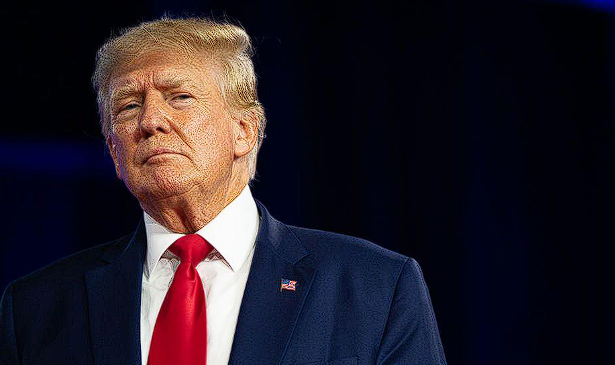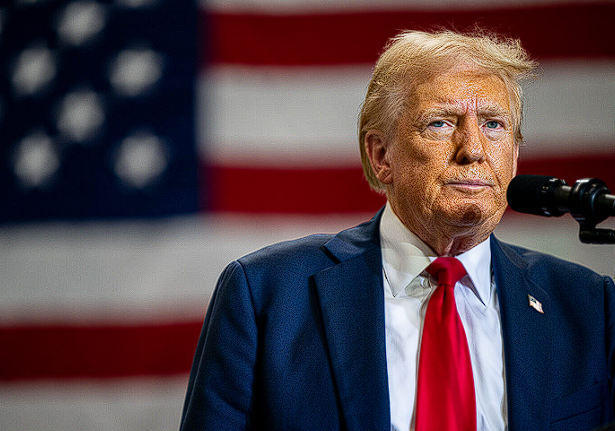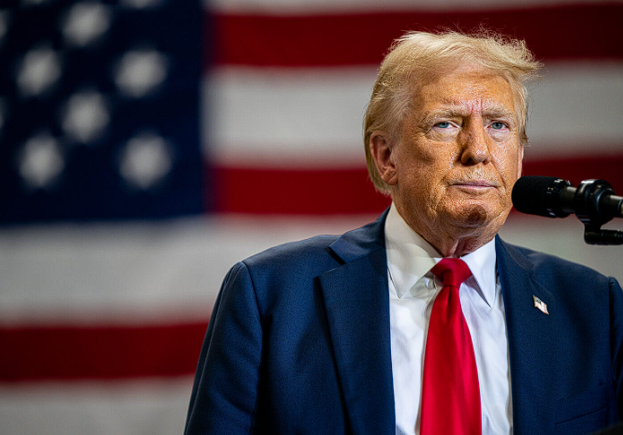In a remarkable turn of events, former President Donald Trump has once again secured the presidency, defeating Vice President Kamala Harris in Tuesday’s election. As he steps back into the role, he’s painted a vision of what he terms a “golden age,” focusing heavily on immigration reforms, economic measures, and strategic government roles filled by loyal supporters.
Among his main promises are ambitious plans to address immigration and economic policies. Since his initial run in 2015, Trump has consistently voiced a hard-line stance on immigration. His current intent is to accelerate deportations, targeting over 13 million individuals residing illegally in the country. This goal poses significant challenges, including the logistical hurdles of detaining such a large number of individuals and the financial implications of expanding immigration enforcement capabilities.
Furthermore, Trump’s economic strategy includes imposing steep tariffs on imported goods. Many economic experts argue that this could escalate consumer prices and ignite potential trade conflicts. Trump, however, remains firm in his resolve, with tariff increases on Chinese imports by up to 60% and on goods from Mexico ranging from 25% to 200%.

Another cornerstone of Trump’s agenda is the selection of key figures for his administration. Among those anticipated to be part of his team is Elon Musk, whose support was crucial during the campaign. Musk has suggested the possibility of slashing $2 trillion in federal spending. Robert F. Kennedy, Jr., known for his controversial stance on vaccines, is also expected to occupy a prominent health role, with goals such as removing fluoride from public water systems.
In a jubilant victory speech, Trump expressed gratitude towards his supporters like Musk and Kennedy, Jr., vowing to grant them the autonomy to implement their plans.
The peaceful transition of power, emphasized by Vice President Harris in her congratulatory call to Trump, marks a stark contrast to Trump’s reaction six years ago when he challenged the 2020 election results. Following the call, Trump’s representative, Steven Cheung, highlighted Trump’s recognition of Harris’s professionalism and their shared commitment to national unity.
With this election victory, Trump becomes the first former president with convictions to return to the White House, despite ongoing legal challenges which include federal charges from his previous tenure. These legal hurdles didn’t deter his loyal base, drawn to his narrative of confronting domestic adversaries whom he refers to as “the enemy from within.”
The steps leading to the new administration involve filling thousands of political appointments, a task expected to proceed smoothly with a supportive Republican-led Senate. Interestingly, a recent U.S. Supreme Court decision has broadened presidential discretion in legal matters, possibly influencing Trump’s handling of political adversaries once in office.
Globally, Trump’s victory elicits mixed reactions. Israeli Prime Minister Benjamin Netanyahu and Qatari leader Sheikh Tamim bin Hamad Al Thani extended their congratulations, emphasizing hopes for continued strategic alliances and cooperation. Ukrainian President Volodymyr Zelenskyy also congratulated Trump, expressing optimism for continued cooperation in addressing regional conflicts.
This victory comes despite Trump’s ongoing legal cases related to his post-presidency actions. His legal calendar was packed during the campaign, with federal cases in Georgia and New York looming large. Notably, a federal judge released substantial documentation linking Trump to election interference in 2020, but procedural delays, including claims of presidential immunity, have stalled proceedings.

The legal atmosphere clouds Trump’s second administration, with unresolved charges of business fraud and controversies surrounding classified documents found at his Mar-a-Lago estate. Yet, despite these challenges, Trump’s widespread support across key states, as projected by the Associated Press, secured his election win.
The Republican Party’s control of the Senate complements Trump’s presidency, facilitating his appointments and legislative agenda, including judiciary and cabinet confirmations. Celebrated by figures like Mitch McConnell, this victory underlines a potential legislative focus on conservative priorities such as tax reform, debt management, and immigration.
Looking back at the campaign, the Democrats, led by Harris, highlighted the challenges to democratic values under Trump’s leadership, focusing on economic struggles and the high cost of living rather than Trump’s legal woes. However, these arguments did not resonate as strongly as anticipated with voters more concerned about financial stability than democratic norms, as evidenced by exit poll data.
In summary, Trump’s renewed presidency brings forth a blend of controversial measures and staunch supporters ready to drive his vision. While he faces significant legal scrutiny, the support from fellow Republicans and strategic international relationships may influence the trajectory of his second term, promising an eventful era in American politics.




